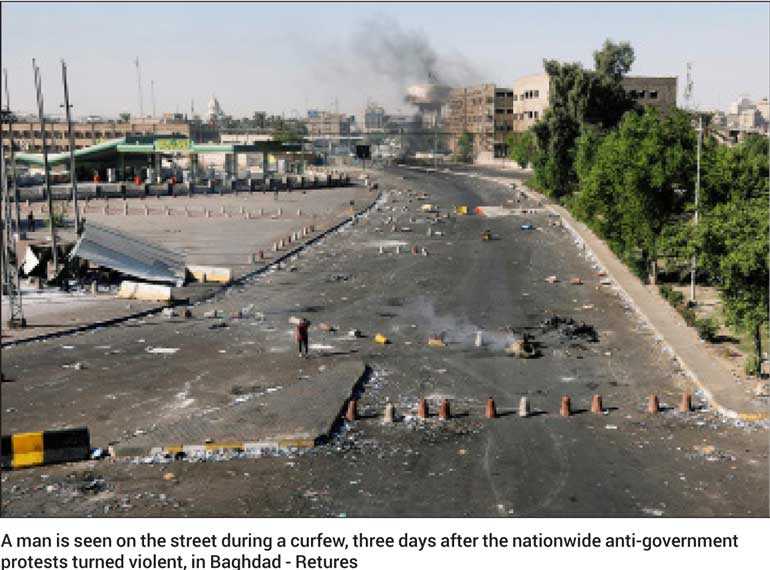Monday Feb 23, 2026
Monday Feb 23, 2026
Saturday, 5 October 2019 00:05 - - {{hitsCtrl.values.hits}}

BAGHDAD (Reuters): The death toll from days of violent demonstrations across Iraq surged to 46 on Friday, most of them killed in the last 24 hours, as unrest rapidly accelerated and the country’s most powerful cleric placed the blame squarely on politicians.
In a rare intervention, Grand Ayatollah Ali al-Sistani, whose word is law for most of Iraq’s majority Shi’ites, called on protesters and the security forces to avoid violence. But he also ordered political factions to respond to protest demands.
“It is sorrowful that there have been so many deaths, casualties and destruction,” Sistani said in a letter read out by his representative Ahmed al-Safi during a sermon in the holy city of Kerbala.
“The government and political sides have not answered the demands of the people to fight corruption or achieved anything on the ground,” he said. “Parliament holds the biggest responsibility for what is happening.”
In an overnight TV address, Prime Minister Adel Abdul Mahdi said he understood the frustration of the public but there was no “magic solution” to Iraq’s problems. He pledged reforms, though these have so far drawn scorn from demonstrators.
The violent demonstrations have escalated by the day since they first erupted on Tuesday, sweeping across the country spontaneously, without public backing from any organised political group and taking the authorities by surprise.
Security forces have fired live ammunition at crowds of mainly young men, and gunmen have fired back. Hundreds of people have been wounded, including members of the security forces as well as demonstrators.
Police and medical sources told Reuters the death toll included 18 people killed in the southern city of Nassiriya, 16 in the capital Baghdad, four in the southern city of Amara and four in Baquba, to the capital’s north. Other deaths were reported in two other southern cities, Hilla and Najaf.
Curfews were imposed in a number of cities. Authorities shut roads into the capital from the north and northeast and were sending reinforcements to Baghdad’s densely-populated east. Military convoys were being sent to Nassiriya, the city worst hit by the violence.
Protesters in Baghdad gathered in darkness overnight by a bonfire set among the flaming wreckage of an armoured vehicle, across the Tigris River from the government compound.